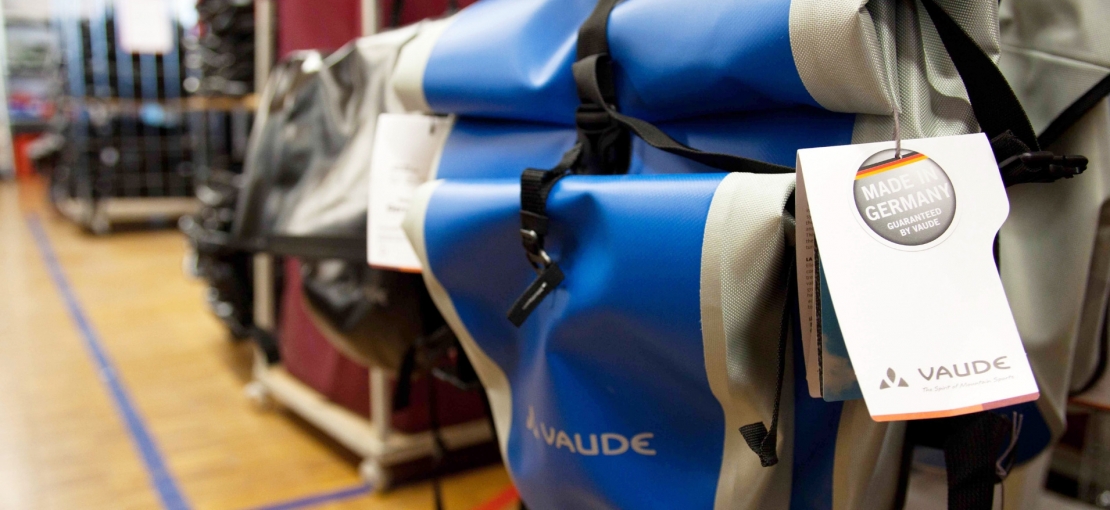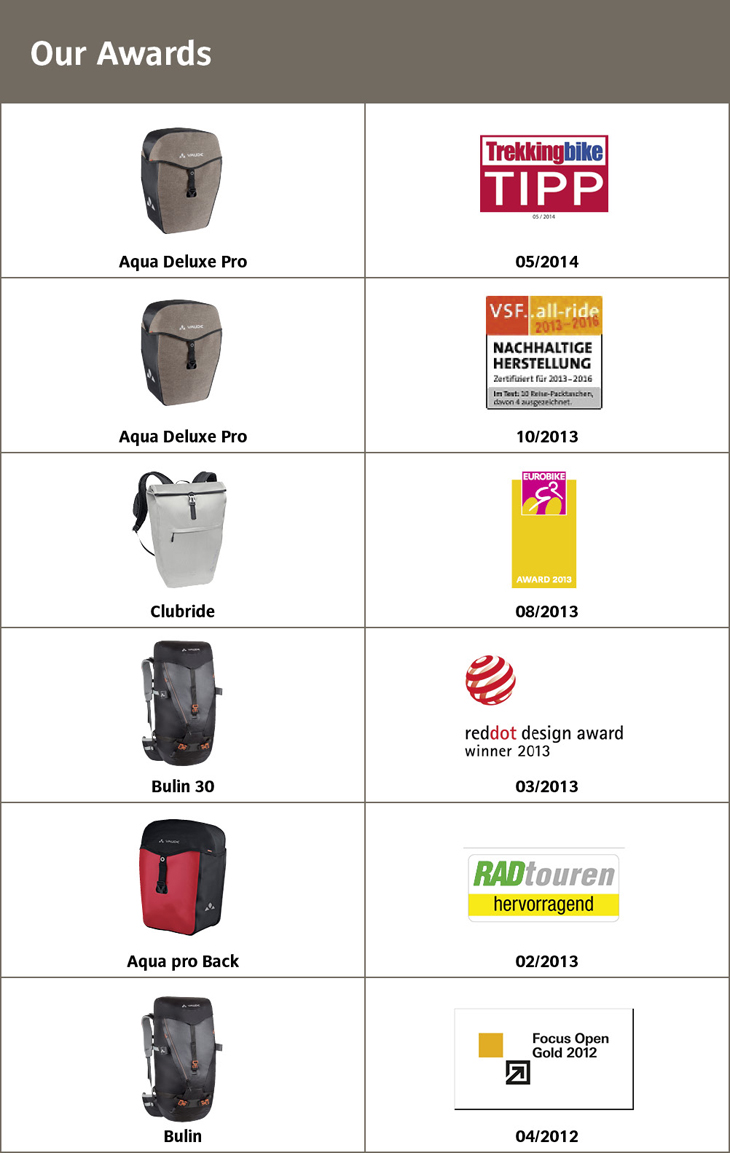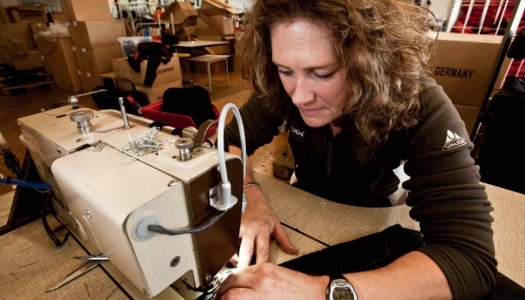
Range of products "Made in Germany"
High-tech made in Tettnang
VAUDE has been producing backpacks and bags in Tettnang-Obereisenbach since 1980. In 1995, we specialized in the production of waterproof products in this location.
We are using an ultra-high frequency method in which the individual components of the products are joined together with HF energy in the form of an electromagnetic field. This results in 100% waterproof "seams" that do not include perforations from a needle.
100 percent: handcrafted, waterproof, climate neutral
Each product is individually made. Approximately 20 individual operations are required including die-cutting the pattern pieces from the material, the welding process, finishing the products, quality control and packaging. Each piece is manufactured by hand at special machines. Our formula includes first-class quality, innovative technology and modern design; the products often last a lifetime.
The entire production site in Tettnang is climate neutral. How that works, is explained here .

High environmental standards
VAUDE is a bluesign® system partner. The production facility in Tettnang-Obereisenbach is regularly reviewed by bluesign®. The entire site is ISO 14001 and EMAS certified.
Secure jobs
With our "Made in Germany” products, we are showing our commitment to our production location in Tettnang. As a member of the "Fair Wear Foundation" (FWF), job security and fair working conditions are not only our concern out in the big wide world, but also right here at home, just “around the corner” in the quaint village of Obereisenbach.

|
Climate neutral production
The "Made in Germany" products are made with climate neutral manufacturing at our company headquarters. |
Alternatives to PVC
In 2014 VAUDE manufactured a total of 134.5 tons of finished products in Tettnang-Obereisenbach, using 148.8 tons of materials. This resulted in a material-efficiency value of 90 percent.
Apart from a few special models, we do not use PVC. The reasons why PVC is so problematic are detailed here.
Part of our die-cutting waste is recycled in a plastic processing company. We must unfortunately still dispose a part (especially waste of coated textile canvas) as residual waste.
Use of materials at the Tettnang-Obereisenbach site
| Year | 2013 | 2013 | 2014 | 2014 |
|---|---|---|---|---|
|
Material |
Input (tons) |
Output (tons) |
Input (tons) |
Output (tons) |
|
Canvas material (polyethylene / polyamide / TPU-coating / PVC) |
35,8 |
|
47,3 |
|
|
Back panel (polyethylene / polypropylene) |
36,6 |
|
50,2 |
|
|
Small parts, diverse materials (plastics, |
47,2 |
|
51,4 |
|
|
Total |
119,5 |
108,5 |
148,8 |
134,5 |
|
Material efficiency |
91% |
|
90% |
|
Currently we are processing only non-renewable materials in Tettnang-Obereisenbach. Packaging for all products that are manufactured at our Tettnang-Obereisenbach location are already taken into account with 14 tons of consumption and consist mainly of cardboard.
Why don’t we produce everything in Germany?
Germany has a highly specialized industrial structure and a high standard of living. The traditional textile expertise that Germany had up until a few decades ago, however, has largely migrated to Asia. This relates both to all material preparation activities – in particular of those made from synthetic fiber – and the labor and cost-intensive production of sewn products.
VAUDE has these manufactured outside of Germany. We nevertheless ensure high environmental and social standards, see Our organization – our supply chain.
| GRI: | EN1 |
| GRI: | EN2 |
| GRI: | EN23 |
| GRI: | EN27 |
| GRI: | EN29 |




